Why is Vitamin D Important, Which Foods Are Best Sources of Vitamin D
Vitamin D is very important to keep the body healthy and functioning properly. Vitamin D assists in the regulation and control of the amount of phosphate and calcium in the body, particularly in the bones and skeleton. This regulation is vital for maintaining and sustaining the healthy growth of bones, teeth, and muscles. While your body naturally synthesises its own Vitamin D when ultraviolet rays from sunlight enters the skin, diet is also an important source ensuring you maintain adequate Vitamin D in your body.
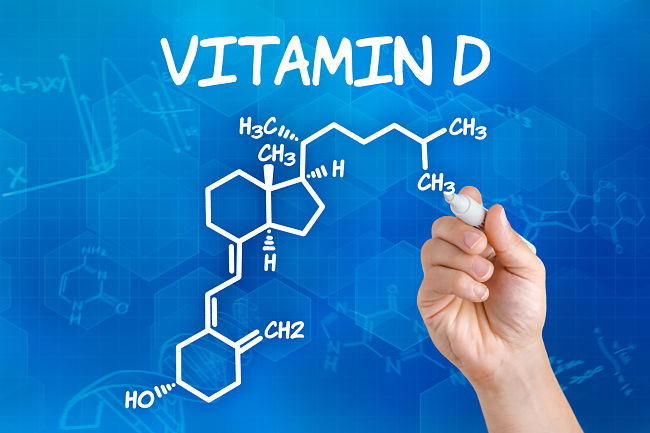
Vitamin D deficiency can lead to juvenile bone deformities such as rickets. It can also cause painful softening of the bones (osteomalacia) bone pain in adults who may be more prone to bone breakages. Vitamin D deficiency is common in people who do not spend enough time outside in direct exposure to sunlight and in people with dark skin who absorb less sunlight. Deficiencies can also arise in people who do not eat enough foods that contain Vitamin D. It also may be age related, perhaps linked to less sun exposure, reduced activity and diet deficiencies.
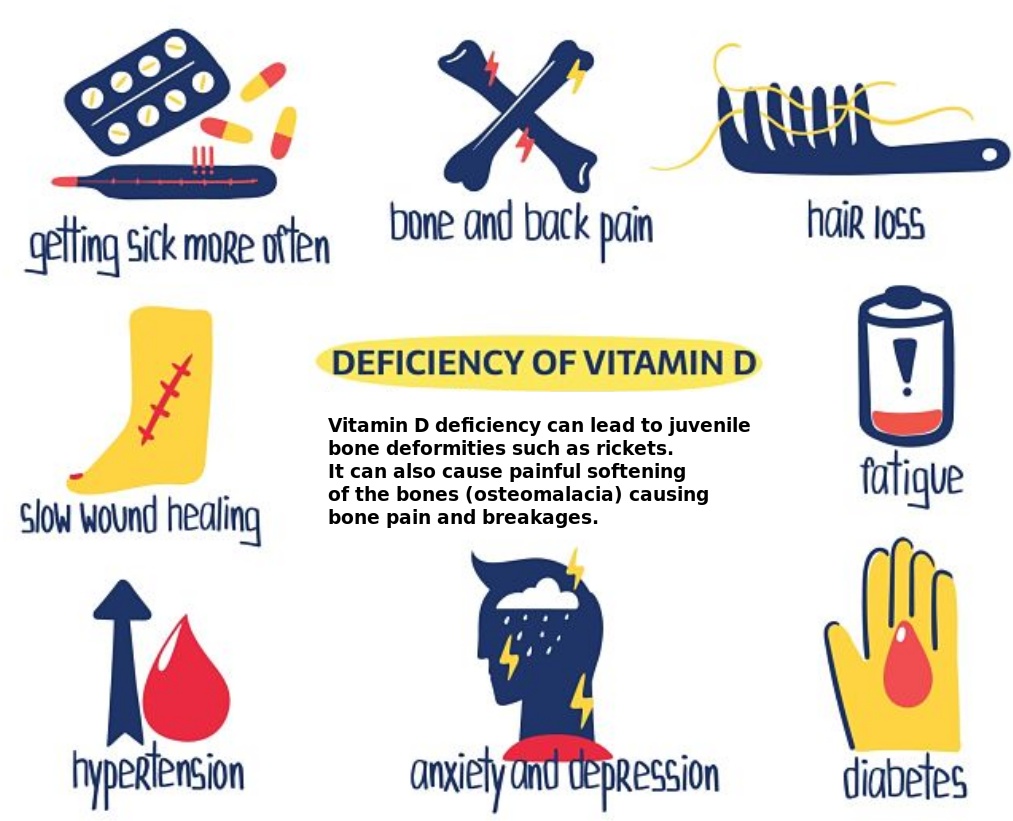
Vitamin D is one of the four known fat-soluble vitamins (Vitamin D, A, E, and K). There are actually two distinct forms of vitamin D, known as D2 and D3. Vitamin D2 (ergocalciferol), is derived from plant foods, various fortified foods, and over-the-counter supplements. Vitamin D3 (cholecalciferol) comes from animal foods (particularly fatty fish, eggs, cod liver oil and liver), various fortified foods, commercial supplements. Vitamin D3 is the variety that is made internally in your body when your skin is exposed ultraviolet (UV) radiation from the sun. The two types have different chemical structures and both are required for healthy bodies.
Vitamin D must be consumed or made daily by the body using sunlight to keep the required levels in balance. It is also added to many commercial foods as an added ingredient. Vitamin D is also available as a dietary supplement in the form of pills or ad cod liver or krill oil preparations.
What are the Vitamin D requirements?
Usually about 20% of our vitamin D comes from our diet with the majority (about 80%) derived by synthesis in our skin from exposure to the sun's UV-B rays. There are currently two key published guidelines for recommended daily vitamin D intake.
The Institute of Medicine (IOM) guidelines are in the form of Adequate Intakes (AI) or Recommended Dietary Allowances (RDA). The RDA is the average daily intake of Vitamin D judged to be adequate to meet the nutrient requirements of nearly all (98%) of otherwise healthy individuals. These guidelines are designed to help prevent vitamin D deficiency problems associated with bone health (bone mineral density, osteomalacia, rickets and general calcium absorption) in the general population.
Institute of Medicine (IOM) Guidelines
- Infants => 400 IU/day
- 1 to 18 years old => 600 IU/day
- 19 to 70 years old => 600 IU/day
- 71+ years old => 800 IU/day
The Endocrine Society recently reviewed the research to establish a medical model to reduce the risk for Vitamin D deficiencies in healthy people.
Endocrine Society Guidelines
- Infants => 400-1,000 IU/day
- 1 to 18 years old => 600-1,000 IU/day
- 19 to 70 years old => 600 IU/day
- 71+ years old => 800 IU/day
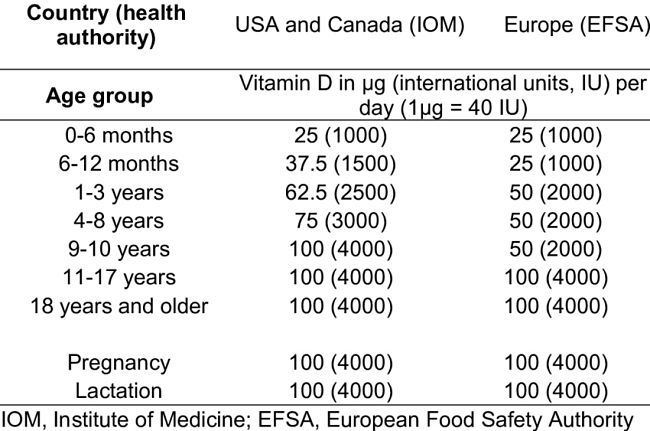
Causes of Vitamin D Deficiency?
Vitamin D deficiencies can arise in a number of ways:
- Inadequate vitamin D in your diet
- Various health conditions including, gastrointestinal disorders, renal diseases and liver diseases.
- Inadequate exposure to sunlight
- Inefficient production in the skin, due to skin color and skin protection
- Inadequate vitamin D in your diet
- Various health conditions including: renal diseases and malfunctions, gastrointestinal problems, liver diseases and other related conditions.
Other Issues Include:
Darker Skin and UV light Absorption - The color of the skin depends on how much Melanin is present. Light-skinned people have much less melanin in their skin than those with brown or black skin skin. Melanin can absorb UV-B radiation from the sunand reduce vitamin D3 production by more than 90%. This means that dark-skinned people may require 3-5 times longer sun exposures to make the same amount of vitamin D3.
Weight Affects - Being overweight or obese is often associated with vitamin D deficiency. A recent review of more than 20 research studies showed that obese people had 35% higher rates of vitamin D deficiency and over-weight people 24% higher rates of deficiencies. While diet and decreased sun exposure may have some impact on this, there appears to be an increased need that cannot be met without a supplement. One study tested the blood levels of vitamin D after sun exposure in both obese and non-obese subjects. The causes of this are uncertain.
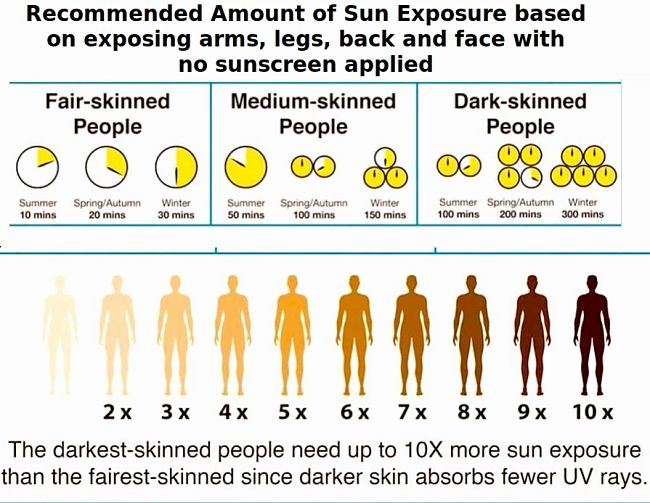
Foods that are Best Natural Sources of Vitamin D
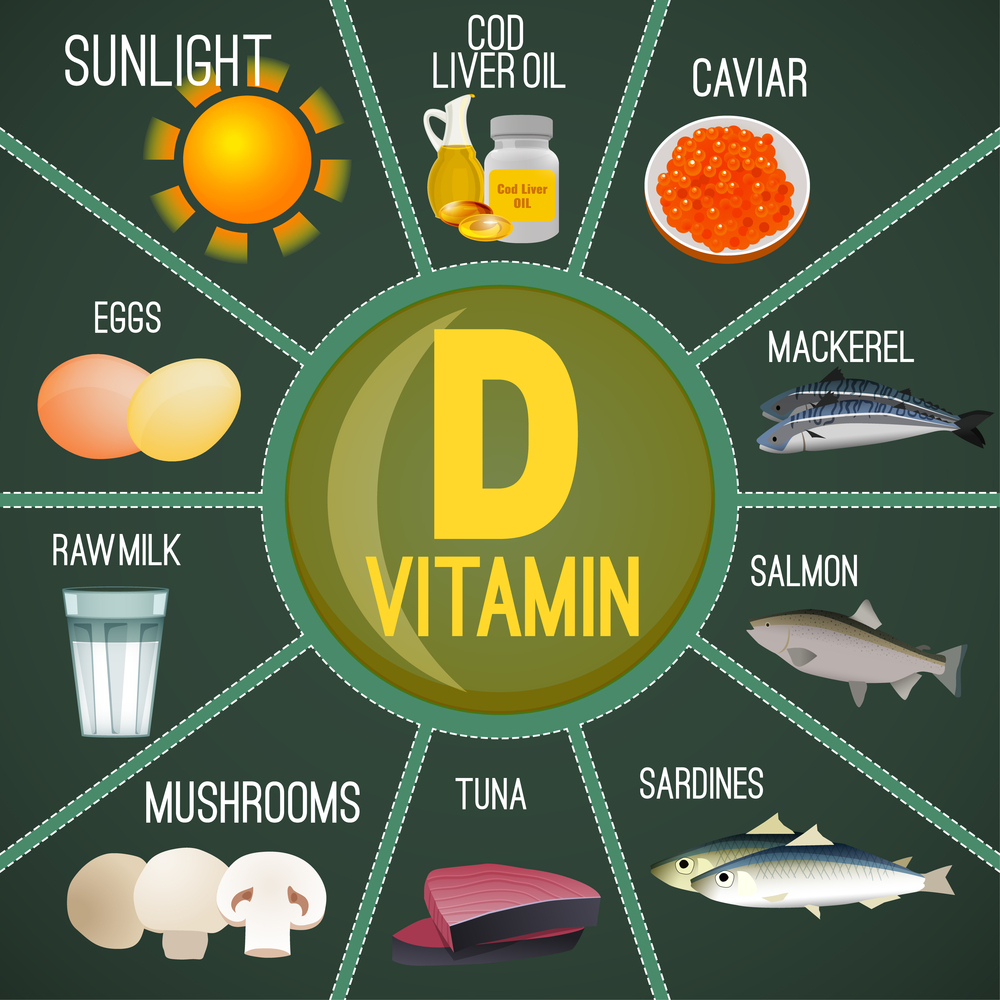
Foods that contain high levels of vitamin D, include:
Salmon - Wild salmon has on average 988 international units (IU) of vitamin D per a 3-ounce (85 g) serving. On the other hand farm-raised salmon has less, at around 250 IU for a 3-ounce (85 g) serving.
Herring and Sardines - Fresh Atlantic herring has about 216 IU of Vitamin D per 3-ounce (85 g) serving. Pickled herring yields about half as much at about 112 IU for a 3-ounce (85 g) serving. Canned sardines have 177 IU in a 3.8-ounce (107 g) can.
Other Oily Fish - Most other fatty or oily fish have moderate amounts of vitamin D. For example, Mackerel (360 IU), Halibut (384 IU) and canned Tuna (268 IU) per 3-ounce (85 g) serving are good sources dietary Vitamin D.
Cod Liver Oil - Is a classic and popular Vitamin D supplement. There is about 448 IU of vitamin D in each teaspoon. Cod liver oil is rich in mega-3 fatty acids and vitamin A.
Egg Yolks - are a good source of Vitamin D ranging from 37 IU per yolk for the eggs of farm-raised chicken and up to 148 IU for free range egg yolks
Mushrooms - are one of the few plant sources of vitamin D. Mushrooms synthesize Vitamin D when grown in UV light, rather than when kept in the dark.
Fortified Foods Enriched with Vitamin D
A good way to ensure you have adequate vitamin D in your diet is to eat foods that have been fortified with it. Such foods include:
- Cereal
- Cheese
- Cow’s milk
- Soy milk
- Orange juice
- Oatmeal
- Yogurt